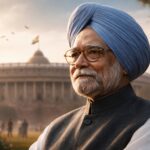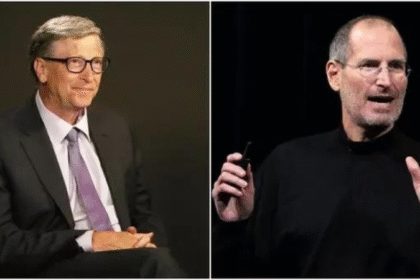MS Dhoni, the former world cup winning captain of India, is often celebrated as one of the greatest leaders in sports, and his leadership qualities can be effectively applied to the corporate context.
Incorporating MS Dhoni’s leadership style into corporate leadership can yield significant benefits for organisations, particularly in fostering a resilient and high-performing work culture. Here’s how various elements of Dhoni’s approach can be effectively adapted in a corporate context, along with practical examples:
- Composure Under Pressure: Dhoni’s ability to remain calm during tense moments teaches the importance of maintaining composure in high-stakes situations. Corporate leaders can benefit from this by making thoughtful decisions rather than reactive ones.For instance, when facing a tight deadline, a leader who remains composed can guide their team to prioritise tasks and maintain focus, mirroring Dhoni’s behaviour in tense match situations.
- Empowerment and Trust: By trusting his teammates and allowing them to take ownership of their roles, Dhoni fosters a culture of accountability. Corporates can learn to empower employees, encouraging initiative and innovation.A manager can delegate significant responsibilities in a project to individual team members, encouraging them to make decisions, similar to how Dhoni trusts his players to perform.
- Effective Communication: Dhoni communicates clearly and directly with his team, which helps align goals and expectations. In business, transparent communication is essential for minimising misunderstandings and building trust.Implement regular team stand-up meetings where everyone shares updates and challenges.This ensures that team members are aligned and feel comfortable discussing obstacles, much like how Dhoni maintains direct communication with his players.
- Adaptability: Dhoni’s strategic adaptability during difficult match situations highlights the need for flexibility in business. Leaders should be open to change and ready to pivot strategies based on market dynamics. During product development, if initial market research shows a different customer need than anticipated, teams should feel empowered to shift focus rather than sticking rigidly to the original plan. Regular review meetings can facilitate this adaptability.
- Team Cohesion: Focus on building strong relationships among team members. Organise team-building retreats or activities that promote collaboration and trust. For instance, a company could arrange an off-site workshop where employees engage in team exercises to strengthen their bonds, akin to how Dhoni fosters unity within his team.
- Learning from Failure: Dhoni views setbacks as opportunities for growth, emphasising the importance of resilience. Corporates can foster a culture that encourages constructive feedback and learning from mistakes.After a project doesn’t meet its goals, hold a “lessons learned” session where team members discuss what went wrong without fear of blame. This aligns with Dhoni’s philosophy of viewing failures as opportunities for growth and learning.
- Mentorship: Establish mentorship programs to guide and develop younger employees.Senior leaders can mentor junior staff, offering guidance on career development and skills. For instance, pairing a seasoned executive with a recent hire can help the newcomer navigate the corporate landscape, reflecting Dhoni’s commitment to nurturing young talent.
- Leading by Example: Leaders should model the values and behaviours they wish to see in their teams.If punctuality is a valued trait, leaders should consistently demonstrate it by arriving early to meetings. For instance, a manager who shows up prepared and on time sets a standard for the rest of the team, similar to how Dhoni leads by example on the field.
- Strategic Decision-Making: Encourage a balanced approach to decision-making that combines data analysis with intuition.In strategic planning meetings, leaders can present both data-driven insights and personal experiences. For example, when discussing market expansion, leaders can analyse trends while also considering instinctual insights based on their industry experience, akin to Dhoni’s game-time decisions.
- Integrity and Humility: Promote a culture of integrity and ethical behaviour. Establish recognition programs that reward employees who demonstrate ethical decision-making and humility. For instance, highlighting team members who admit mistakes and learn from them can reinforce a culture of honesty, similar to Dhoni’s humble demeanour despite his success.
By embracing these lessons from MS Dhoni’s leadership style, corporates can cultivate a resilient, motivated workforce capable of navigating the challenges of today’s dynamic business landscape. His approach emphasises the significance of people-centric leadership, strategic thinking, and a commitment to continuous learning and improvement.This approach not only enhances team dynamics but also prepares companies to navigate challenges effectively while fostering a culture of continuous improvement and growth.











